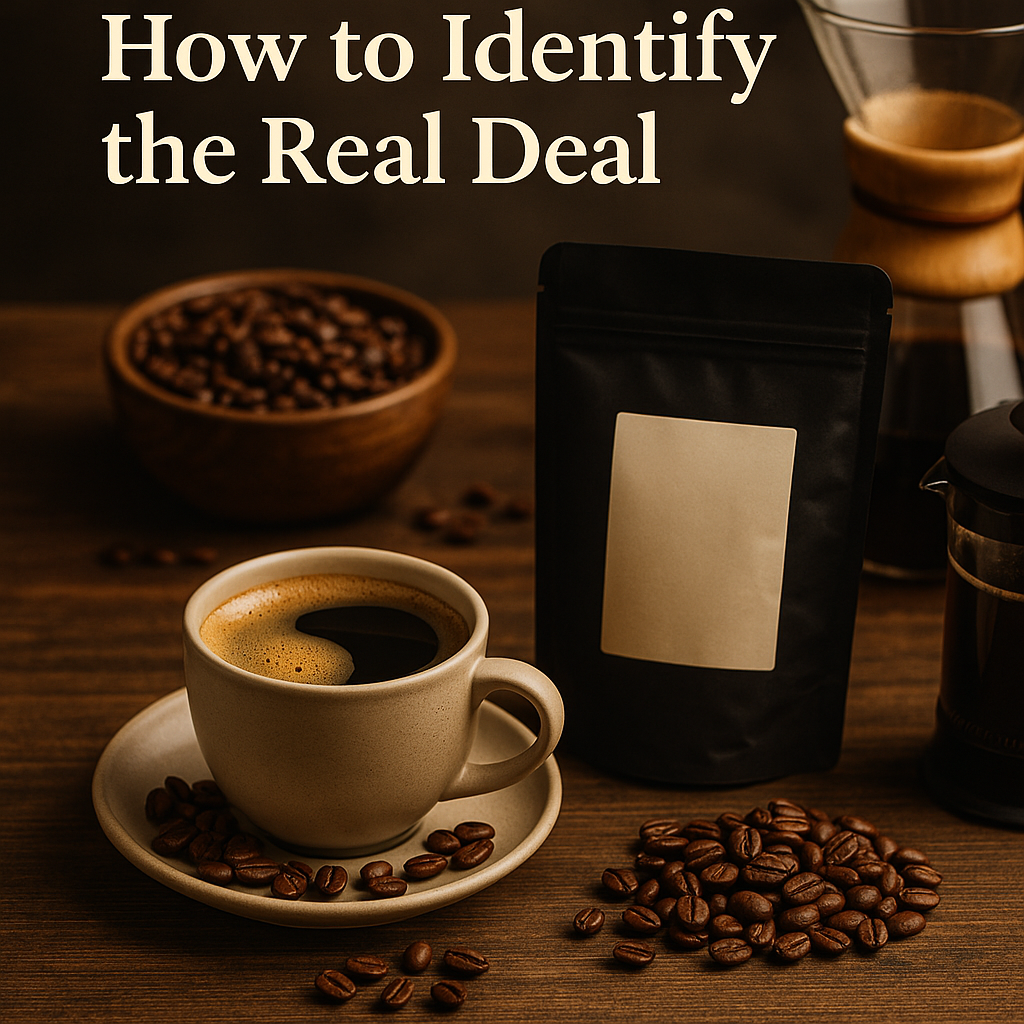Coffee is no longer just a morning ritual. For millions around the world, it has become a complex passion — and with this evolution came the rise of gourmet coffee. But what exactly does “gourmet” mean when it comes to coffee? Is it just a marketing term, or are there real differences that justify the label?
In this article, we’ll break down what qualifies coffee as gourmet, how to identify a genuine high-quality cup, and why it’s gaining so much popularity globally.
What Exactly Is Gourmet Coffee?
The term “gourmet coffee” refers to beans that offer exceptional quality in flavor, aroma, cultivation, and preparation. It is often used interchangeably with terms like “specialty coffee” or “premium coffee,” although there are subtle distinctions.
To be considered gourmet, a coffee typically needs to meet several key criteria:
- Grown in ideal environmental conditions
- Harvested and processed with meticulous care
- Roasted with precision to enhance flavor
- Brewed using methods that preserve quality
Gourmet coffee is not mass-produced or generic. Each cup reflects a carefully managed process from seed to sip.
Origin Matters: Single-Origin vs. Blends
One of the first indicators of a gourmet coffee is its origin. Many gourmet coffees are single-origin, meaning all the beans come from a specific farm, region, or country.
This is important because:
- The environment (or terroir) influences the bean’s flavor profile.
- Single-origin coffee highlights unique notes from the region (floral, fruity, nutty, etc.).
- Traceability ensures higher quality control and fairer trade practices.
By contrast, generic coffees often mix beans from various places to maintain volume, sacrificing uniqueness for uniformity.
Bean Quality and Type
Most gourmet coffees are made from 100% Arabica beans, which are known for their smooth, nuanced flavors. In contrast, Robusta beans, though cheaper and higher in caffeine, are more bitter and used primarily in commercial blends and instant coffee.
Key bean factors that influence gourmet status include:
- Size and density (larger and denser beans typically indicate higher quality)
- Handpicking vs. mechanical harvest (handpicking ensures only ripe beans are selected)
- Defect rate (gourmet beans have fewer defects or irregularities)
Look for beans labeled “Grade 1” or “Specialty Grade” to ensure top-tier quality.
The Role of Roasting
Even the best coffee beans can be ruined with poor roasting. Gourmet coffee is roasted with extreme precision, often in small batches, to maximize the natural flavors of the bean.
Unlike generic supermarket coffee, which is often over-roasted to mask imperfections, gourmet coffee roasting aims to:
- Preserve natural flavor notes (like citrus, caramel, chocolate)
- Achieve a balance between acidity, body, and sweetness
- Avoid burnt or overly bitter flavors
The roast level — light, medium, or dark — should complement the bean’s origin, not dominate it.
How It’s Brewed: Preparation Techniques Matter
Even the highest quality bean can fall flat if poorly brewed. Gourmet coffee is typically prepared using methods that enhance flavor, such as:
- Pour-over (like V60 or Chemex)
- French press
- Espresso machines with pressure control
- Cold brew (slow extraction method)
Each method affects flavor, mouthfeel, and aroma. True coffee enthusiasts often experiment with grind size, water temperature, and brewing time to extract the perfect cup.
Aroma and Flavor Profile
One of the easiest ways to recognize gourmet coffee is by its aroma and complex flavor:
- The aroma should be fresh, clean, and fragrant — never stale.
- The taste should have layers of flavor, not just bitterness.
- You may detect fruity, floral, nutty, chocolatey, or even spicy notes depending on the origin.
If your coffee tastes flat or burnt, it’s likely not gourmet — no matter what the packaging says.
Packaging and Freshness
Gourmet coffee prioritizes freshness. That’s why it often comes in:
- Sealed, airtight bags with a one-way valve to release gas but prevent air entry
- Roast dates printed clearly on the packaging
- Whole beans, not pre-ground, to preserve essential oils and flavors
Buying gourmet coffee means you’re often encouraged to grind the beans just before brewing for maximum freshness.
Ethical and Environmental Considerations
A truly gourmet coffee experience isn’t just about flavor — it also involves sustainable and ethical practices. Look for certifications such as:
- Fair Trade
- Organic
- Rainforest Alliance
- Direct Trade (which often offers better transparency than Fair Trade)
These indicate that farmers are paid fairly, and that environmentally responsible farming practices were used.
Price: Is It Worth It?
Yes, gourmet coffee costs more. But the higher price reflects:
- Better growing and processing conditions
- Higher labor standards and fairer wages
- Smaller production volumes
- More flavorful and satisfying cup
You’re not just paying for coffee — you’re paying for craftsmanship, ethics, and an elevated experience.
Final Thoughts: A Cup Above the Rest
Gourmet coffee is not a marketing gimmick. It represents a commitment to excellence at every stage — from the soil where the beans grow to the cup in your hand.
By understanding what makes coffee gourmet, you become a more informed consumer and can truly appreciate the rich world behind every sip. So the next time you reach for your morning brew, consider upgrading to a gourmet experience — your taste buds (and the farmers) will thank you.
